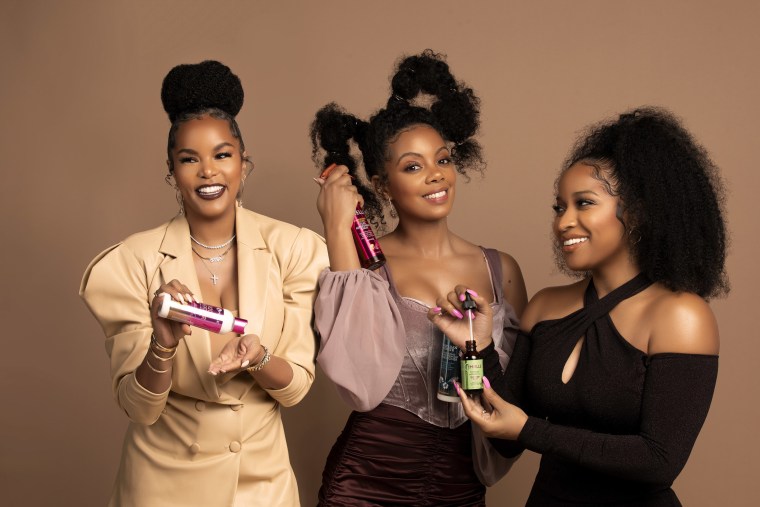Black-owned hair care brand Mielle Organics announced Wednesday that it will join P&G Beauty, which is part of the major conglomerate that owns some of the biggest personal care brands in the world, including Always and Olay.
P&G Beauty will work with Mielle Organics to expand access to the brand in Black communities and fund research and innovation in hair care for underserved communities, Lela Coffey, vice president of P&G’s multicultural hair business, said in a statement.
Mielle co-founder Monique Rodriguez said of the partnership, “I am thrilled that we will make an even greater impact in how we give back to the community.”
This comes weeks after Mielle Organics became the subject of controversy after its rosemary mint scalp and strengthening oil went viral on TikTok.
In late December, TikTok star Alix Earle, who is white, reviewed the product for more than 3 million followers, citing “tremendous hair growth” after using the product for a little over a month.
Comments on the post were soon filled with Black and white users alike quipping things like, “Great now Mielle is about to be gentrified.”
“Hey girly that hair oil is not for us,” another TikTok user wrote.

After Earle’s promotion of the product, along with reviews from other white creators like Danielle Athena and Kelly Anne Stone, TikTok users claim the product has quickly sold out in stores.
Najeera Williams, who owns the natural hair care brand Chairish Naturals and is a Mielle Organics customer, explained the collective concern among Black consumers in a TikTok post.
She said Black women were rightfully concerned about this product reaching white people due to “a similar situation with another brand known as Shea Moisture.”
In 2017, major consumer goods company Unilever acquired Shea Moisture, a Black-owned hair care brand. The brand launched an ad that became infamous for featuring three women with straight hair and one with curly hair; only one of the women was Black.
At the time on social media, people said Shea Moisture had essentially whitewashed products once designed for Black women and that the quality of the product suffered once ownership changed.
Black hair care is a growing niche in the beauty industry, but there still are not many products available that, like Mielle Organics, are specifically created with natural hair in mind despite Black consumers spending “$473 million in total hair care (a $4.2 billion industry)” as of 2017, according to a Nielsen report.
“By now you know that there are not a lot of products on the market for us,” Ronelle Tshiela said in a TikTok. “If you go in store, you have to march to the ethnic hair section, and you notice that this section is significantly smaller than all of the other sections.”
One white TikTok creator, Christine Knudsen, told NBC News she chose to stop using the oil and search for “more suitable products” for her hair type.
“I decided to stop using it mainly because it didn’t work for my hair type,” Knudsen said.
“Because of supply and demand the oil has become a lot more inaccessible to communities who need it,” she said, adding it was important “to be more knowledgeable about suitable products and to not blindly follow TikTok trends.”